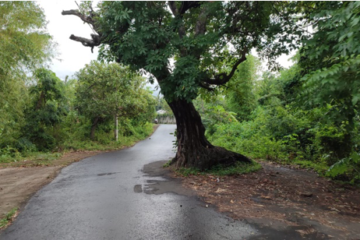The Truth Requires a Little Shame and Guilt
By Susanne Karr

What kind of person do I want to be? This question serves as a compass for personal growth, guiding the ever-unfolding journey of self-discovery and transformation. When attention is given to what truly matters, the values that shape one’s path become clear—yet they remain mere signposts, as living in alignment with them is a choice not always embraced. Too often, the desire for belonging takes precedence over the call of authenticity, leading many to conform to a socially desirable status quo rather than explore the deeper question of which feelings, actions, thoughts, and perceptions create a life that is truly their own.
Making demands on oneself is a moral act that connects the individual to a larger framework. Morality is often met with hesitation, misunderstood as paternalism and a restriction of freedom in a society that values individual expression. While selfish impulses are framed as free speech, true communication and commitment suffer. Without commitment, words and values lose their weight—what is said today is forgotten tomorrow. This is seen in both politics and personal life, where a growing trend of distancing from responsibility reflects broader political dynamics.
Responsibility, truthfulness—for many people, these ideals sound like relics from an era of restriction. On the other hand, isn’t the mindset in which everyone can do as they please actually an outdated, deeply reactionary one? It disregards all meaning and causal connections and only emphasizes the egotistical, temporary gain in pleasure that comes from the soulless exploitation of all available resources.
The attitude has an impact on different levels—firstly, on the material level. What the earth gives is harvested, and what it does not give ‘voluntarily’ is taken from it (e.g. fracking). What can be fished out of the sea is taken, the treasures that are too deep down are mobilized by sonic cannons. The entire arrangement of the exploitation industry of animals caught for life, whose bodies are misunderstood as material or producers, can only be described as a catastrophe for everyone involved—on a material level, but also on a psychological level.
The second level of impact is psychological, when people and animals are made available on an emotional level according to their performance. This includes the entire field of neoliberal self-optimization and the debatable development in the area of ‘emotional support animals.’ The objectification of potential (temporary) partners on dating platforms is part of a similar attitude.
The presence of the soul can hardly be denied, even if it’s buried in the unconscious. It persists through the inner voice, or ‘conscience,’ which rises above ego-driven desires and calls for commitment. Events centered on ‘community’ are popular because they unite commitment and communication, reminding us that our actions have an impact, shaped by our thoughts and perceptions of reality.
We can’t escape the impact of our actions, even if many claim they have no influence. Responsibility persists, bringing guilt with it. How we treat others is our responsibility. Highlighting this often triggers anger, as if people want to stay in their bubble of irresponsibility. Animal rights activists argue that inducing guilt isn’t constructive, but sidelining the guilt debate distances us from discussing moral consciousness.
In another understanding, however, guilt and shame are seen as morally effective, pedagogical initiators: because they can encourage changed behavior and motivate people to make amends for damage. The Finnish philosopher Elisa Aaltola differentiates between guilt, which primarily relates to individual actions and takes place internally, and shame, which primarily takes place ‘externally’ and is associated with the question of how ‘others’ perceive and judge you.
In her comments on “morally constructive shame,” she writes: “While guilt can provoke a change in a specific belief or action, shame can lead to more profound, systemic modifications in entire systems of beliefs, values, and actions.” Shame begins with self-perception and the desire to align with one’s values, prompting questions like: “Why do I define my ‘self’ in this way, and how does it affect my treatment of the world? How might I define myself differently to coexist more respectfully with other species and nature?”
Self-determined action can only arise if you reflect on your own values and weigh them up against your own actions. This opens up another dimension: the prerequisite that you are aware of your own values. Where do these come from? Are they a pure adoption of socially recognized norms or is there an independent subject in the sense that it weighs up for itself which convictions or guidelines it wants to act according to?
Access to one’s own feelings is a sine qua non. In the everyday manipulation by messages from a media-driven, consumerist zeitgeist, you first have to free yourself from its whispers, sometimes even wriggle out of them. This requires awareness and understanding of the necessity. A helpful question is: Who is telling what, for whom, and why? Who benefits from the success narratives in Western societies today? How do they relate to our own ideas of a successful life? Why is success valued so highly over fulfilment? The difference is clear: success is visible and measurable—through material goods or financial power—while fulfilment is internal, felt through a presence of the soul.
Guilt and shame are central to philosophical thought. They guide personality development by prompting questions like: How should I behave to stand by my actions, and what are the consequences? For instance, when it comes to using animals as food, we ask: Do I want to support an animal losing their life for my consumption? Similarly, in politics: Can I justify the marginalization of others?
Such considerations can trigger unpleasant feelings. But in contrast to the censorship mechanisms that use trigger warnings to conceal the truth, let us be reminded and admonished by the writer Ingeborg Bachmann: ”The truth is that the truth is bearable,” emphasizing that truth is something humans can be expected to face. And self-reflection without censorship is an essential contribution to this.
#
Dr. Susanne Karr is a journalist and independent scholar deeply intrigued by the dynamics of interconnectedness and transformative growth. As a philosopher, she delves into human-animal relations and alternative modes of conveyance, exemplified in her book “Connectedness” (Verbundenheit) and her blog Striped Insights. Her coaching practice combines systemic counseling and hypnosis.
Counterpoint blogs may be reprinted with the following acknowledgement: “This article was published by Counterpoint Navigating Knowledge on 11 February 2025.” The views and opinions expressed on this website, in its publications, and in comments made in response to the site and publications are those of the author(s) and do not necessarily reflect the views and opinions of Counterpoint: Navigating Knowledge, its founders, its staff, or any agent or institution affiliated with it, nor those of the institution(s) with which the author is affiliated. Counterpoint exists to promote vigorous debate within and across knowledge systems and therefore publishes a wide variety of views and opinions in the interests of open conversation and dialogue.
Photo credits: Free download from Pexels.com



0 Comments